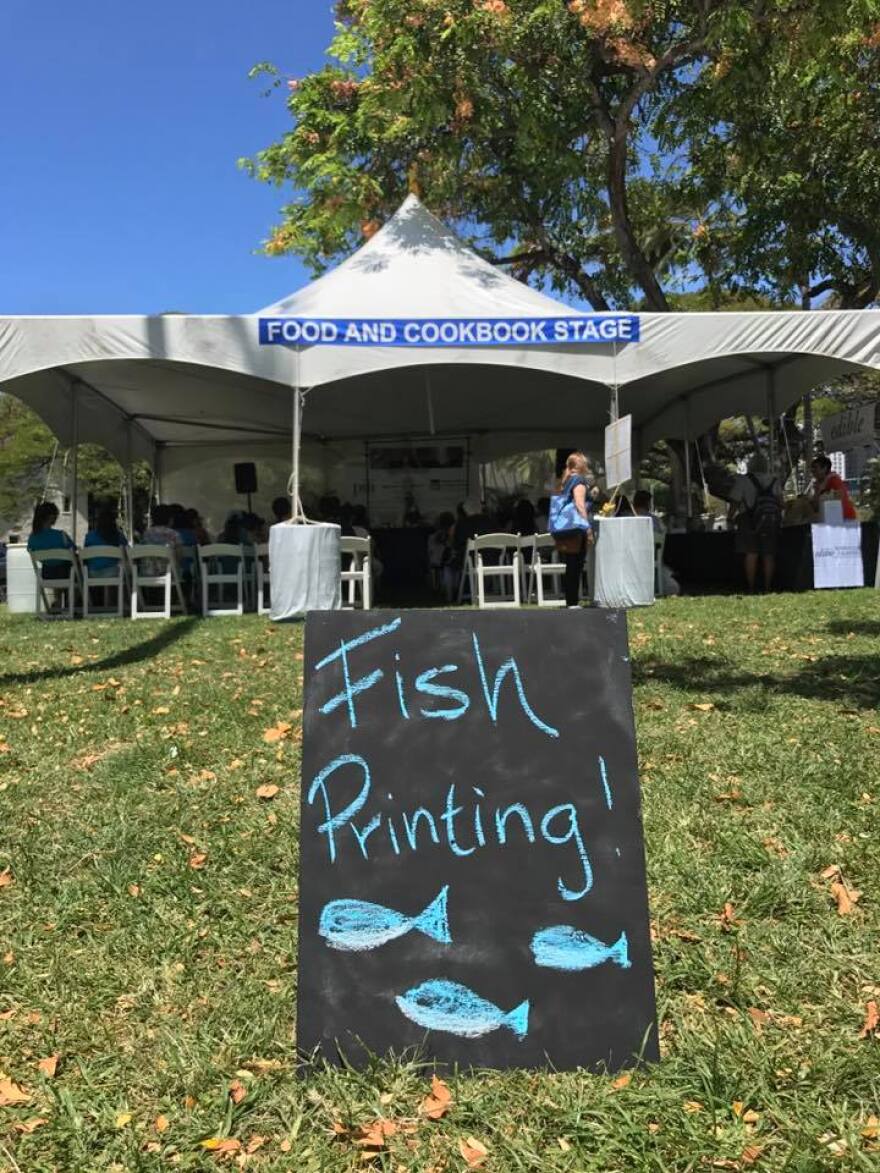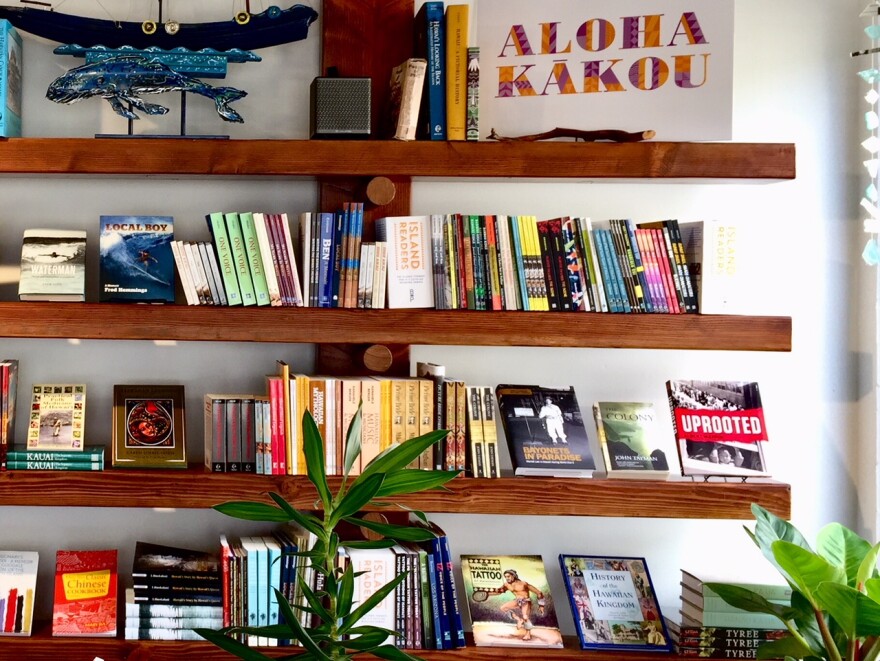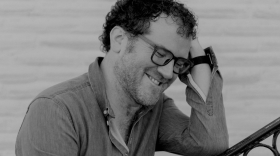Honolulu’s annual Hawai‘i Book and Music Festival attracts thousands of participants every year in late spring. The two-day event doesn't just bring noteworthy authors to town. There are children’s activities, food books and demos, even dance and music concerts, and discussions about local issues. After 13 years, the festival is looking forward to serving more people across the state.

"Literature is something that’s meant to be experienced. Literature is an immersive experience, personalized, and can be shared," says David DeLuca, Chair of the Board of the Hawai‘i Book and Music Festival.
DeLuca is also Director of Publishing and Development at Bess Press, and we're meeting at his new place, Da Shop, a store for books and curiosities in Kaimuk?.
It’s the joy of sharing a reading experience that propels dozens of book fairs around the globe, including the Hawai‘i Book and Music Festival, or HBMF. Roger Jellinek is HBMF’s Executive Director, and has been since its founding 13 years ago.

Jellinek: (2018) It was terrific, it was the best yet. We had a lot more people and every venue seemed to be almost full, all the time. And we were very lucky with the weather.
It was overcast Saturday, but beautiful on Sunday there on the grounds of Honolulu Hale, with events taking place under white tents, or in the Mission Memorial Auditorium. Jellinek says it’s rough estimating attendance.
Jellinek: First, it’s free admission, people can come from any direction. Some people stay for an hour, some people stay for 2 days, so how do you count? We say 20-30 thousand.
That’s a lot! You see people with strollers bumping along all over the place, you can buy books, talk to authors from here and abroad, attend workshops. There are lots of music and dance performances, and the whimsically added plant sale has been fun. Chair of the HBMF board, David DeLuca, says they’re shooting for more, with the amazing Los Angeles Times Festival of Books, called the Coachella of books, as their model.
DeLuca: There’s a lot of institutional support for HBMF. One of the things we’re looking at as a board is just how to attract a broader array of people, from young children all the way up to our k?puna who can engage with what the Festival has to offer.
DeLuca says things take time, but they may try expanding the arts component.

DeLuca: I think another element of it is looking at it not necessarily having the dependency that people are going to physically come down to the festival location. If there’s a way for us to take that content and move it around so that it’s happening in different places around the island, over a longer period of time, then you’re going to have people engaging in what they’re interested in because it oftentimes can be hosted or presented in a place that is going to promote that or is beneficial for having that.
Like on Moloka‘i…
DeLuca: Yes, on Moloka‘i, or on Kaua‘i. There’s a lot of interest from folks on the other islands, even County governments that want to bring that offering to people there. I don’t think there’s any reason not to. There’s not a reason why elements of that festival can’t exist in a year-round capacity.

DeLuca: What’s cool, not just on O‘ahu but all around Hawai‘i, is that we have people who have left, they’ve gone to school, they’ve worked elsewhere. They’ve travelled, they’ve gained a lot of these immersive experiences, and they’re coming back here and they’re trying to take those “outside-Hawai‘i” experiences and provide the opportunity in a local context for people to engage in something that’s a little bit different.
DeLuca: What‘s great about it is, there’s that passion and that empathy of making it local, putting that local spin on it, which is great! It’s what we need here.
DeLuca: We are creating a new unique identity for Hawai‘i today and what a modern Hawai‘i looks like that still has a very strong and growing root in its past.
DeLuca says there is tremendous readership for content about “place” here. As people get older, he says, they become more curious about what shaped them. Genealogies, the etymology of things, interest people, and today, the quality of book design makes books more desirable.

HBMF, and this bookstore/event space we’re in, are about reading, then sharing.
DeLuca: Now, I think more so than ever, with the current politics of the time, it’s even more necessary to showcase why the arts, why engagement in public spaces is necessary. Gathering in spots like bookstores is important. It’s because of those fibers that connect us as humans, we’re able to come together and have these discussions.
DeLuca: We believe in the concept that children who learn to read become adults who think. And adults who think are people who become engaged. And not engaged with themselves and other people, but within the community locally, nationally and internationally.

DeLuca’s saying that reading provides experiences that encourage civic life. Hmm. He’s got films and classes going on here at Da Shop, he’s getting a barista too.
DeLuca: I think there’s a lot of potential as to what could be offered, it’s a matter of seeking out engagement, right?
Oh right, it still comes down to us, getting off the couch after reading that book.




